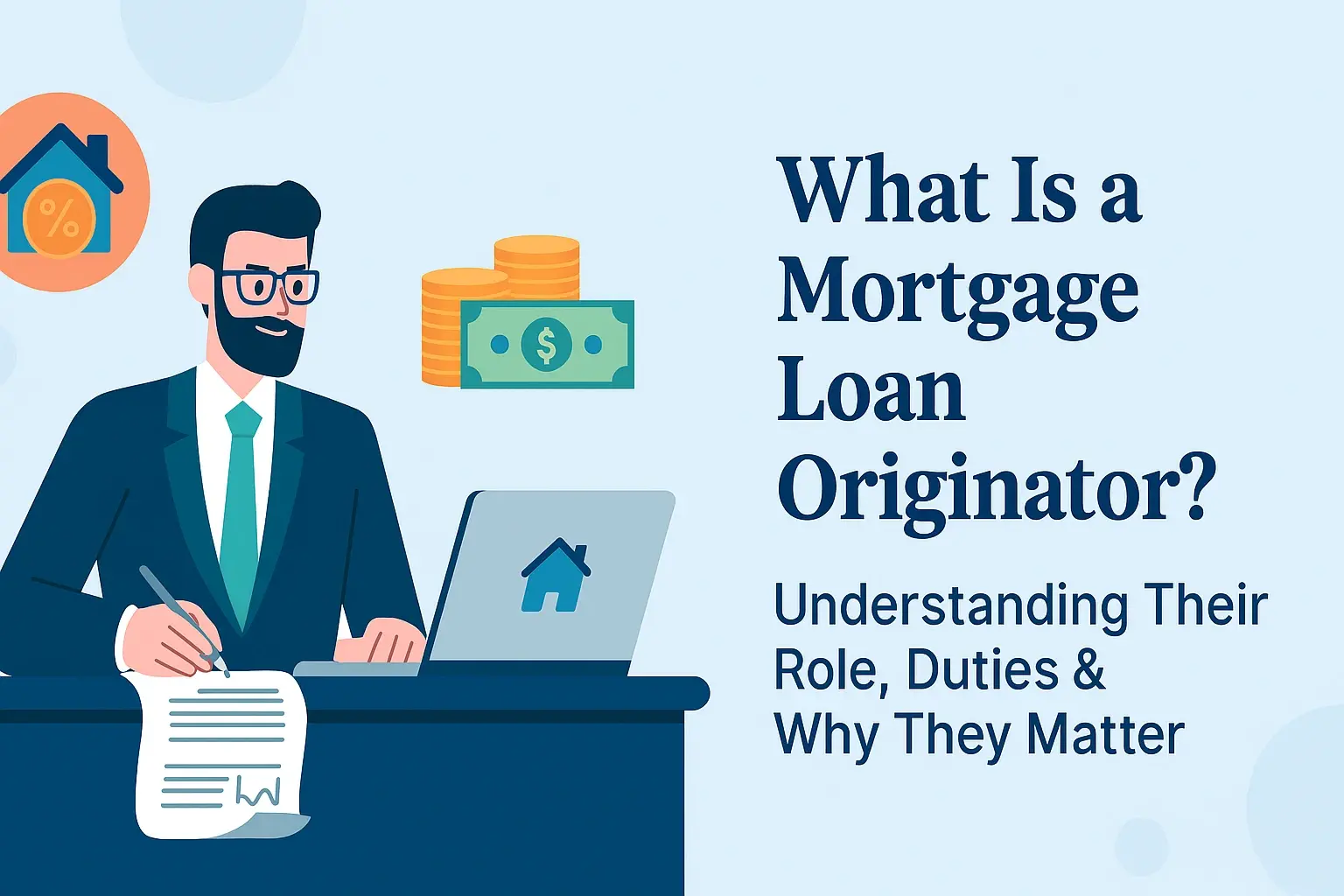-
Posted on: 09 Sep 2025

-
For millions of people, buying a home is a cornerstone of the American dream. But let's be honest, very few of us have hundreds of thousands of dollars in cash sitting in the bank. This is where a mortgage loan comes into play. It is the key that unlocks the door to homeownership for most individuals and families. But what exactly is it? How does it work? And how can you navigate the process successfully? This comprehensive guide will demystify the world of home financing. We will break down everything from the basic definition of a mortgage loan to the intricate details of interest rates and the application journey. Whether you're a first-time homebuyer or looking to refinance, understanding how mortgage loans work is the first critical step toward making one of the most significant financial decisions of your life.
How Does a Mortgage Loan Work? The Basic Mechanics
At its core, a mortgage loan is a specific type of loan used to purchase real estate. In this arrangement, the borrower (you) receives funds from a lender (a bank, credit union, or online lender) to buy a home. The property itself serves as collateral for the loan. This means the lender has a legal claim to the property until you repay the loan in full.
The process is governed by a legal agreement. You promise to pay back the borrowed amount, plus interest, over a set period. This period is known as the loan term. Common terms are 15, 20, or 30 years. Your monthly payment is typically split into four parts: principal, interest, taxes, and insurance (often abbreviated as PITI).
-
Principal: The original amount of money you borrowed.
-
Interest: The cost of borrowing that money, expressed as a percentage rate.
-
Taxes: Property taxes, which the lender often collects in an escrow account.
-
Insurance: Homeowner's insurance and, if applicable, private mortgage insurance (PMI).
If you fail to make your payments, the lender has the right to foreclose on the property. This means they can take possession of the home and sell it to recover their money.
Types of Mortgage Loans: Finding Your Perfect Fit
Not all mortgage loans are created equal. Different loan products are designed to meet the needs of different borrowers. Understanding the types of mortgage loans available is crucial for making an informed choice.
1. Conventional Mortgage Loan
A conventional loan is not insured or guaranteed by the federal government. They typically require a higher credit score and a larger down payment (often 5-20%) compared to government-backed loans. They are a popular choice for borrowers with strong financial profiles.
2. Fixed-Rate Mortgage (FRM)
This is the most traditional and predictable type of home loan. The interest rate is locked in for the entire life of the loan. Your monthly principal and interest payment remains constant, making budgeting easy. This stability comes at a slight premium, as initial rates are often higher than those of adjustable-rate mortgages.
3. Adjustable-Rate Mortgage (ARM)
An ARM has an interest rate that can change over time. It typically starts with a fixed, introductory rate for a set period (e.g., 5, 7, or 10 years). After that, the rate adjusts periodically based on a market index. Your payments can go up or down. ARMs can be risky if rates rise significantly, but can be beneficial if you plan to sell or refinance before the adjustment period.
4. Government-Backed Mortgages
These loans are insured by federal agencies, making them less risky for lenders. This allows lenders to offer them to borrowers who might not qualify for conventional loans.
-
FHA Loans: Insured by the Federal Housing Administration. They are famous for their low down payment requirements (as low as 3.5%) and more flexible mortgage loan eligibility criteria regarding credit scores.
-
VA Loans: Guaranteed by the Department of Veterans Affairs. Available to eligible veterans, active-duty service members, and surviving spouses. VA loans often require no down payment and no private mortgage insurance.
-
USDA Loans: Backed by the U.S. Department of Agriculture. Designed to promote homeownership in eligible rural and suburban areas. They often feature zero-down-payment options for low-to-moderate-income borrowers.
5. Other Specialized Mortgage Loans
-
Reverse Mortgage: Allows homeowners aged 62 or older to convert part of their home equity into cash. The loan is repaid when the homeowner sells the house, moves out, or passes away.
-
Jumbo Loans: These are mortgages that exceed the conforming loan limits set by government-sponsored enterprises. They are used for financing luxury homes and require excellent credit and significant assets.
Benefits of a Mortgage Loan: More Than Just a Roof
Opting for a mortgage loan offers several compelling advantages that extend beyond simple home acquisition. Understanding these benefits of a mortgage loan can help you see it as a strategic financial tool.
-
Achieves Homeownership: The most obvious benefit. It enables you to buy a home without saving for decades to pay the full price up front.
-
Long Repayment Tenure: Spreading the cost over 15 to 30 years makes monthly payments more manageable and frees up cash for other goals.
-
Builds Equity: With each payment, you own a little more of your home. This equity is a powerful form of forced savings that you can borrow against later for renovations, education, or other needs. Read more about home equity and how to use it.
-
Potential Tax Benefits: In many countries, including the U.S., the interest you pay on your mortgage may be tax-deductible, potentially lowering your overall tax burden. (Always consult a tax advisor for your specific situation.)
-
Stable Housing Costs: With a fixed-rate mortgage, your principal and interest payment never changes. This provides predictability in your budget, unlike rent, which can increase annually.
Mortgage Loan Eligibility Criteria: Are You Qualified?
Lenders don't hand out large sums of money without doing their homework. They assess your mortgage loan eligibility based on several key factors to determine if you are a reliable borrower.
-
Credit Score: This is a numerical representation of your creditworthiness. A higher score signals that you're a lower risk. For conventional loans, a score of 620 is often the minimum, but better rates require scores of 740 or higher. Understanding your credit score is a critical first step.
-
Debt-to-Income Ratio (DTI): This measures your total monthly debt payments (including your potential new mortgage) against your gross monthly income. Most lenders prefer a DTI ratio of 43% or lower.
-
Down Payment: The initial upfront payment you make for the home. A larger down payment reduces the lender's risk and can help you avoid private mortgage insurance (PMI) on conventional loans.
-
Employment and Income History: Lenders want to see a stable and reliable source of income. They typically require two years of consistent employment history, verified through pay stubs, W-2s, and tax returns.
-
Property Documentation: The home itself must also qualify. It will need to pass a home appraisal to ensure it's worth the loan amount and a home inspection to identify any major issues.
The Mortgage Loan Process: A Step-by-Step Walkthrough
The mortgage loan process can seem daunting, but breaking it down into steps makes it much more understandable. From application to closing, here’s what you can expect.
-
Pre-Approval: You provide a lender with basic financial information. They check your credit and give you a pre-approval letter stating how much they are tentatively willing to lend. This shows sellers you are a serious buyer.
-
Application: Once you find a home and have an accepted offer, you complete a formal mortgage application (often the Uniform Residential Loan Application).
-
Document Submission: You will submit a mountain of paperwork. This includes tax returns, bank statements, pay stubs, and information on your debts and assets.
-
Processing and Underwriting: A loan processor verifies all your documents. Then, an underwriter performs a deep dive into your finances. They assess the risk and make the final decision to approve or deny the loan.
-
Property Appraisal: The lender orders an appraisal to confirm that the market value of the home matches the purchase price.
-
Loan Approval and Closing Disclosure: Once approved, you receive a Closing Disclosure. This document outlines the final loan terms and closing costs. You must review it carefully.
-
Closing: This is the final meeting where you sign a stack of legal documents, pay your closing costs and down payment, and officially receive the keys to your new home.
Mortgage Loan Interest Rates Explained
Mortgage loan interest rates are arguably the most critical factor in determining the overall cost of your home. Even a fraction of a percentage point can translate to tens of thousands of dollars over the life of the loan.
Factors That Affect Your Interest Rate
-
Credit Score: Higher score = lower rate.
-
Loan Type and Term: Government loans may have different rates than conventional ones. Shorter-term loans (15-year) usually have lower rates than longer-term loans (30-year).
-
Down Payment: A larger down payment can sometimes secure a slightly better rate.
-
Economic Factors: Broader economic conditions, including inflation and Federal Reserve policy, influence the rates lenders offer.
-
Loan Amount and Location: Jumbo loans have different rates, and rates can vary slightly by state.
How to Get the Best Mortgage Loan Rate
-
Boost Your Credit Score: Pay down debts and correct any errors on your credit report.
-
Save for a Larger Down Payment: Aim for 20% to avoid PMI and potentially get a better rate.
-
Shop Around: Compare loan estimates from at least 3-4 different lenders. Don't just look at the rate; compare annual percentage rates (APR), which include fees.
-
Consider Paying Points: You can pay an upfront fee (a "point") to lower your interest rate. This can be worth it if you plan to stay in the home for a long time.
Mortgage Loan vs. Home Loan – Are They Different?
The terms are often used interchangeably, and for most practical purposes, they mean the same thing. However, there can be a subtle technical difference.
-
Mortgage Loan: Specifically refers to a loan where real property (land and anything attached to it) is used as collateral.
-
Home Loan: Can be a broader term that includes loans for purchasing a home, but also home-related loans that are not strictly mortgages, such as home improvement loans or home equity lines of credit (HELOCs) that are taken out after you already own the home.
In everyday conversation, when someone says "I got a home loan," they almost always mean a mortgage loan to buy a house.
Feature Mortgage Loan Home Loan (Broader Sense) Primary Purpose To purchase real estate To purchase or renovate a home Collateral The property itself Often, the property, but not always Common Types Conventional, FHA, VA, Fixed, ARM Purchase mortgages, HELOCs, and Home Improvement Loans Interchangeable? Almost always in a home-buying context Yes, but it can be slightly more general Common Mistakes to Avoid While Taking a Mortgage Loan
A mortgage is a long-term commitment. Avoiding these common pitfalls can save you money and stress.
-
Not Checking Your Credit First: Errors on your report can lower your score. Check it early and dispute any inaccuracies.
-
Ignoring Your Budget: Just because you're pre-approved for a certain amount doesn't mean you can comfortably afford the monthly payment on a house that expensive.
-
Not Comparing Lenders: Different lenders offer different rates and fees. Failing to shop around is like leaving free money on the table.
-
Overlooking Hidden Charges: Carefully review your Loan Estimate and Closing Disclosure for all fees, including origination charges, appraisal fees, and title insurance.
-
Making Large Purchases Before Closing: After you're approved, do not open new credit cards, finance a car, or make other large purchases. This can change your debt-to-income ratio and credit profile, potentially jeopardizing your final approval.
Tips to Manage Your Mortgage Loan Effectively
Once you have your mortgage, smart management can help you build wealth faster.
-
Make Extra Payments: Even one extra payment per year can shave years off your loan term and save thousands in interest.
-
Consider Refinancing: If interest rates drop significantly, refinancing your mortgage to a lower rate can reduce your monthly payment.
-
Reassess Your Budget: Your mortgage payment is likely your largest expense. Ensure it fits comfortably within your monthly budget.
-
Understand Your Escrow Account: Know how your lender handles property tax and insurance payments. Review your escrow analysis statement each year.
The Future of Mortgage Loans: Digital and Streamlined
The mortgage loan industry is evolving rapidly. Technology is making the process faster and more transparent. The rise of "fintech" companies and digital mortgage applications allows for e-signatures, online document uploads, and quicker automated underwriting. While the core principles of lending remain, the customer experience is becoming more efficient and user-friendly.
Frequently Asked Questions (FAQ)
Q: What is the minimum credit score for a mortgage loan?
A: It depends on the loan type. For an FHA loan, you may qualify with a score as low as 580 (with a 3.5% down payment). For a conventional loan, the typical minimum is 620.Q: Can I get a mortgage loan without a job?
A: It is extremely difficult. Lenders need proof of stable income. If you are self-employed, you will need to provide extensive tax return documentation. Other sources of income, like retirement or investment income, may be considered.Q: What happens if I default on a mortgage loan?
A: Defaulting means failing to make your payments. The lender will eventually begin foreclosure proceedings. This is a legal process that can lead to you losing your home and severely damaging your credit score for years.Q: How long does it take to get mortgage loan approval?
A: From application to closing, the process typically takes 30 to 45 days. It can be longer if there are complications with the appraisal, title, or your application documentation.Q: Is a mortgage loan tax-deductible?
A: In the United States, the mortgage interest you pay on a loan up to $750,000 (for married couples filing jointly) may be tax-deductible if you itemize your deductions on your tax return. Always consult a tax professional for advice.Q: Can I transfer my mortgage loan to another bank?
A: Most mortgages are not assumable, meaning a new buyer cannot take over your loan terms. However, you can refinance your mortgage with a new lender, which involves taking out a new loan to pay off the old one, ideally at a better rate.Conclusion: Your Path to Homeownership Starts with Knowledge
A mortgage loan is a powerful financial tool that makes the dream of homeownership a reality. Understanding what a mortgage loan is, from the types of mortgage loans available to the intricacies of the mortgage loan process, empowers you to make confident decisions. It's not just about getting a loan; it's about investing in your future and building long-term wealth through equity.
The journey requires careful planning—from checking your credit score and saving for a down payment to comparing offers from multiple lenders. By being an informed borrower, you can secure the best possible mortgage loan interest rates and terms for your unique situation.
Ready to take the next step? Your journey begins now. Use online comparison tools, speak to multiple lenders, and get pre-approved to understand your true buying power. Compare mortgage loan offers before applying to ensure you find the perfect fit for your financial future.
-











